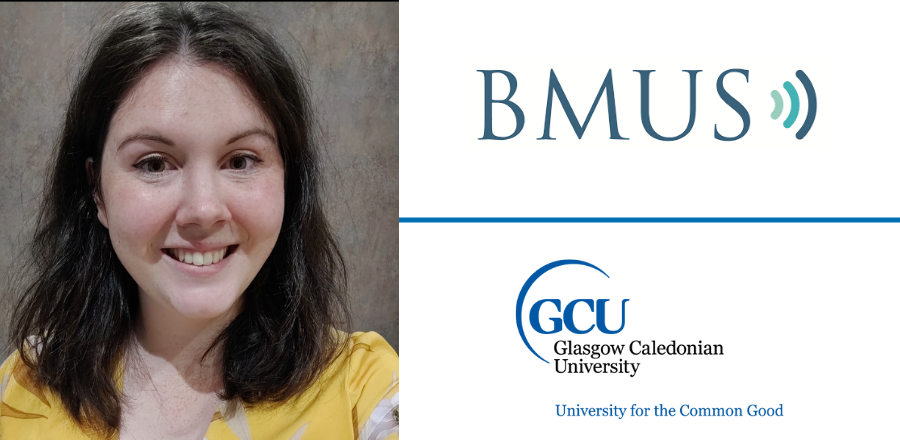Medical Ultrasound student develops confidence and knowledge at study day

A GCU student was given the perfect opportunity to present their research to health professionals and academics at a recent on-campus event - which finally went ahead after a two-year delay.
Medical Ultrasound’s Alison Scott was asked by her Programme Lead Elaine Gardiner to get involved in the BMUS Gynaecology Study Day, after completing a case report as part of her module in January.
The event - which was held on the 28th of April - followed on from the successful BMUS Medical Ultrasound study day, which also took place at GCU in March 2019.
Alison gave an insight into her work, saying: “My presentation focused on isthmocele, which is a defect that arises after a caesarean section delivery. It’s basically a scar that holds fluid and you end up getting a lot of abdominal pain and spotting between periods.
“It’s more common with the more caesarean sections someone has – and as the rate of C-sections increase around the world, it’s going to become much more prevalent.
“Gynaecologists are really trying to pick up on it and get patients treated as quickly as possible; it can massively affect your quality of life and has even caused secondary infertility.”
With lecturers, gynaecologists and consultant radiographers all in attendance on the day, Alison admits that she was feeling the pressure when it was time to present her findings.
She said: “I was definitely nervous but it was a really good environment to be in – there were a lot of very academic people in the room! I had been a bit worried that I would be at a lower level than everyone else but they were all really welcoming and helped me get set up.”
Alison, who balances her studies alongside her job as a trainee sonographer at Ninewells Hospital, added: “The presentation itself went really well. I had actually delivered it at work a few weeks before over Microsoft Teams, but it was actually much easier in-person because I got a lot more feedback.
“Everyone seemed happy with it and a lot of people came up afterwards and said it wasn’t something that they would have reported or knew very much about. Hopefully, it will help health professionals become more aware of isthmoceles and result in patients getting treated quicker.”
With six other guest speakers from across the NHS presenting on the day, there was plenty of opportunity for Alison to broaden her knowledge – which she admits can only be of benefit to her future career.
She explained: “It was really good to hear some of the talks, particularly endometriosis and adenomyosis from the team at St Thomas’ Hospital in London. Following on from my talk, there was also a gynaecologist who discussed ectopic caesarean scar pregnancies, so it all seemed to really link in.”
Alison added: “The whole experience of attending and presenting has definitely been helpful. We, as sonographers, are under quite a lot of scrutiny and need to be reviewed regularly, so getting used to presenting in front of peers is a key part of our job.
“Conducting research and continuing to develop in our role is vital for what we do, so it really stands me in good stead at this early point in my training.”
By Ross Clark
Got an SHLS or GSBS story? Email me at Ross.Clark@gcu.ac.uk or message me on Twitter
